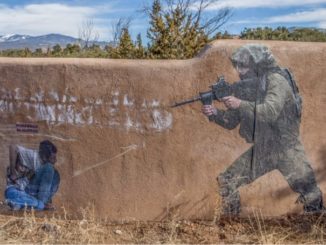
By Benay Blend
On December 31, 2019, attorneys for Dr. Rima Najjar filed a suit against Quora in the United States District Court for the Northern District of California.
Her complaint, filed by Daniel Siegel of Siegel, Yee, Brunner, and Mehta, and Rima Kapitan, of Kapitan Law Office, charges that Quora banned her on May 2, 2019, because moderators did not rely on objective policies, as noted in their guidelines, but instead evinced hostility towards her political opinions and national origin (Palestine).
“I hope that my case will make it easier for Palestinians and supporters of justice in Palestine to speak freely on social media,” she explains.
Indeed, this was not the case for Dr. Najjar on Quora, which is why she is fighting back. According to the complaint, Dr. Najjar hoped to fill what she saw as a void by providing well-researched posts that would educate readers on Palestinian history as well as current struggles. She hoped that this would reach a broader audience as internet searches repeatedly bring up Quora answers that lean heavily towards a Zionist slant.
On April 9, 2019, Dr. Najjar and I created two Quora “Spaces”—“Solidarity Song” and “One Km. to Palestine”—designed respectively to share posts related to anti-colonial struggles around the world and the second space to focus directly on Palestinian issues. As our spaces grew in popularity, and as Dr. Najjar’s readership grew, opponents of Palestinian rights on Quora began to see her as a threat.
Dr. Najjar carried on posting well-researched answers, providing posts and commentary to both spaces, and engaging in conversations with moderators regarding repeated “collapsed answers” as well as temporary bans on her posts. Finally, on May 2, 2019, she received notice of a permanent ban.
My own ban came soon after, not because of discrimination towards me, but because I supported Dr. Najjar’s pro-Palestinian positions, and most likely because various other Jewish contributors, who were also Zionists, were never able to bring me into their fold.
Quora’s efforts to explain their reasoning to Dr. Najjar mirrors what are often murky notions of civility in the larger world. For example, when explaining via email why Dr. Najjar violated Quora’s “Be Nice, Be Respectful” policy, Tatiana Estevez defined discussion of anti-Zionism as “hate speech,” clarifying that “if you write a lot of content that is anti-Zionist and then call out people for being Zionists, then you’re using this term in a pejorative way with the intent to derogatorily label that person.”
In other words, because Dr. Najjar opposes Zionism as a movement than by identifying a person as a Zionist that is “hate speech.”
As her attorneys explain in their complaint, Zionism is in practice “the negation of the right of Palestinians to self-determination in Palestine.” To restrict Dr. Najjar from criticizing this movement is to prevent her from “affirming and defending her own Palestinian identity, human rights, and the rights of others who share her national origin.”
As compensation Dr. Najjar’s attorneys are asking for her reinstatement to Quora; an order preventing Quora from discriminating against users on the basis of anti-Zionist political opinion, Palestinian ancestry and/or Palestinian national origins; and compensation for attorney fees and other litigation expenses, lost income Dr. Najjar could have received through Quora’s Partner Program, emotional distress, punitive damages, and other relief that might be considered proper.
As a result of Dr. Najjar’s ban, the story that remains on Quora erases Palestinian identity, much like Israel has attempted to do in their negation of Palestinian presence and history on the land. On the topic of Palestine, as Dr. Najjar points out in her blog/journal, the majority of “Most Viewed” writers on Quora at the time of our ban were Zionists and zealously anti-Palestinian.
If Dr. Najjar wins her case, it could set a legal precedent to counter recent moves by governments around the world to deny Palestinians and their supporters the right to free speech about their cause. For example, President Donald Trump’s Executive Order that requires alleged anti-Semitic incidents be treated in the same way as forms of discrimination based on “race, color, or national origin” as defined in the federal funding rules in Title VI of the 1964 Civil Rights Act. In reality, his order gives green light to silence criticism of Israel.
Dr. Najjar writes in her Facebook announcement of the case:
“What a fantastic way to begin 2020 by fighting back!”
Clearly, she refuses to be silenced by Quora’s ban. Because of her courage in fighting back, various social media platforms, college campuses, and other similar forums might very well have a more diverse perspective in the coming years.
– Benay Blend earned her doctorate in American Studies from the University of New Mexico. Her scholarly works include Douglas Vakoch and Sam Mickey, Eds. (2017), “’Neither Homeland Nor Exile are Words’: ‘Situated Knowledge’ in the Works of Palestinian and Native American Writers”. She contributed this article to The Palestine Chronicle.

– Benay Blend earned her doctorate in American Studies from the University of New Mexico. Her scholarly works include Douglas Vakoch and Sam Mickey, Eds. (2017), “’Neither Homeland Nor Exile are Words’: ‘Situated Knowledge’ in the Works of Palestinian and Native American Writers”. She contributed this article to The Palestine Chronicle.







